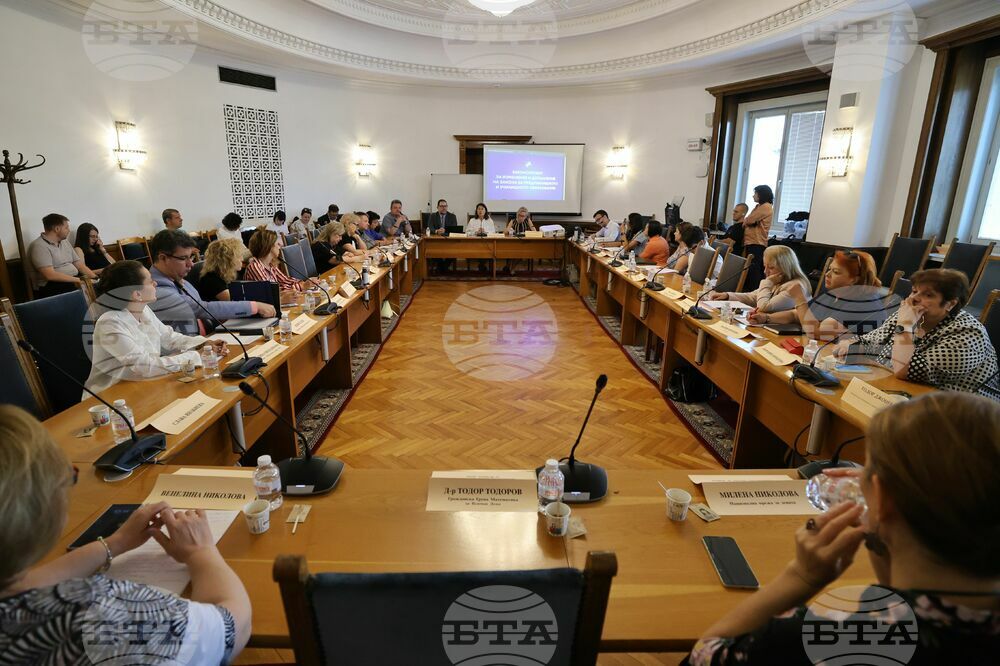site.btaUPDATED Experts and Legislators Debate Pre-school and School Education Act Amendments Put Forward by Democratic Bulgaria


At a roundtable discussion in Parliament on Friday, representatives of political parties, education experts, and local authorities debated amendments to the Pre-school and School Education Act, submitted by Democratic Bulgaria.
The political party Yes, Bulgaria, which is part of the Democratic Bulgaria coalition, is calling for expanded reforms in preschool and school education, with a focus on ensuring equal access, high-quality learning, and value-based education.
MP Elisaveta Belobradova emphasized that the draft legislation is not intended to compete with the government’s bill, but to present a vision of the elements they believe are missing from the Council of Ministers’ proposal. The key proposals include the introduction of a new compulsory subject called “Virtues,” where students will learn about values rooted in the Constitution, European principles, and the Charter of Fundamental Rights of the EU. Belobradova pointed out that virtues are largely taught at home, and if schools are to take on this role, parents must be actively involved in the process.
Meanwhile, the subject “Religion” will remain optional, with guaranteed equal access to all major religious traditions in Bulgaria or as a non-denominational option. This proposal was strongly supported by the Parents’ Association, which stated that keeping religion as an elective subject helps avoid the risks of division, conflict, and discrimination.
Georgi Nyagolov, a Yes, Bulgaria education expert and professor of English literature at Sofia University, commented that the main problem of the Bulgarian pre-school and school education system is the failure to ensure quality education. According to him, students are not developing civic attitudes, social, and emotional competencies, and the changes proposed by the Ministry of Education bypass this core issue instead of addressing it.
Deputy Minister of Education and Science Emilia Lazarova stated that she hopes the government’s bill will lead to a constructive dialogue and that the final changes will serve the best interests of children, ensuring quality education and their development. She noted that Democratic Bulgaria’s proposals differ conceptually in some aspects, such as the inclusion of complementary early childhood education and care services within the system of pre-school and school education. According to the draft, these include children’s centers, parent cooperatives, and mother-child groups, but there is no clear definition of their status. Lazarova also pointed out an unjustified expansion of the participants involved in the selection commissions for school principals.
Iliya Tasev, Director of the Public Health Protection, Health Control and Patients’ Rights Directorate at the Ministry of Health, stressed that all facilities where children are cared for and educated should be subject to the same health requirements, regardless of who has established them. According to him, lowering the standards would lead to many kindergartens registering as children’s centers to avoid stricter regulations. Tasev expressed hope that with the upcoming changes, including a new regulation on kindergartens, all such services in Bulgaria will be able to operate under the names “kindergarten” or “nursery,” following unified health and safety rules.
Desislava Zhelyazkova, Director of the Education Directorate at Sofia Municipality, pointed out that complementary services already exist in Sofia, as well as in other cities such as Varna, Plovdiv, and Burgas, and should be properly regulated. She suggested giving municipalities the right to register parent cooperatives and children’s centers to ensure clarity on how many children are enrolled and what services are provided. Zhelyazkova also said that a proposal has been made to allow municipalities to introduce fees for attending nurseries and kindergartens during non-school periods, at the discretion of municipal councils. This would provide greater security for staff and encourage parents to follow through on commitments to enroll their children.
Tsveta Brestnichka from the Parents’ Association called for a differentiated approach to complementary services, noting that while some offer excellent quality, others do not. Without licensing and quality standards, the health and safety of children cannot be guaranteed, she warned.
During the discussion, Todor Jonev from the National High School for Ancient Languages and Cultures voiced opposition to Democratic Bulgaria’s proposal to expand the selection committees for school principals by increasing the influence of parents and public councils. According to him, this could lead to schools being governed by an overly democratic but potentially anarchic model of self-management.
/DS/
Additional
news.modal.image.header
news.modal.image.text
news.modal.download.header
news.modal.download.text
news.modal.header
news.modal.text











